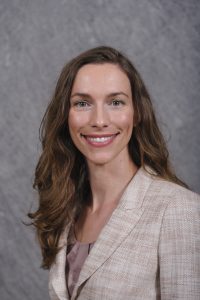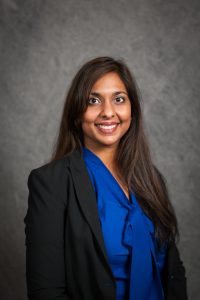
TUSCALOOSA, Ala. — Five University of Alabama students in the Culverhouse College of Commerce’s masters of marketing program placed in the top 10 percent of the more than 1,500 participants competing in the 2015 Google Online Marketing Challenge.
This is the first time students from Susan Fant’s advanced digital and social media marketing class have participated in the competition. Fant is an instructor in digital and social media at Culverhouse.
“I can’t be more excited about this team’s excellent results,” said Fant. “The team competed with teams across North America and other continents and were all Google AdWords-certified in the process.

“The development of the project, along with working with Grad School Match founders, was an incredibly valuable experience for our students, and we hope to continue working in the future with Grad School Match in this type of partnership.”
The team included masters students Amber Bara, team leader, Cleveland, Ohio; Quintin Howze, Birmingham; Raphaela Petermann, Brazil; Shweta Gamble, Birmingham; and Siddik Bozkurt, Turkey.
“This competition, along with the M.S.M. degree, has given me a skillset that I would’ve never had and experiences I couldn’t have gotten anywhere else without being in a job for a really long time,” Bara said. “The classes are intense – you’re getting years worth of experience in a very short time.”
Teams of four to five students had just three weeks and a $250 budget to work with their live client to create and launch an online Google AdWords marketing campaign. They were required to submit details of their campaigns throughout the challenge while showing the keywords and ads used to drive results for their client.
The Culverhouse team worked with Atlanta-based company Gradschoolmatch, a company co-founded by University of Alabama alumnus Brian Clark. The team believes that their diversity played a major role in their success.
“Each student had a different background, culture and talents,” said Bara. “And, even though there was sometimes a language barrier, it forced the students to explain things in more depth, leading them to truly digest and empathize with each other’s perspectives.
“We wouldn’t make a team decision until everyone expressed himself or herself as much as they needed to in order to make their point understood. It led to better decision making, and I believe that was the reason we worked so well together.”
More than 100,00 students and professors from nearly 100 companies have participated in the international competition since it started eight years ago.
Contact
Edith Parten, UA media relations, eparten@Culverhouse.ua.edu, 205/348-8318
Source
Susan Fant, scfant1@culverhouse.ua.edu